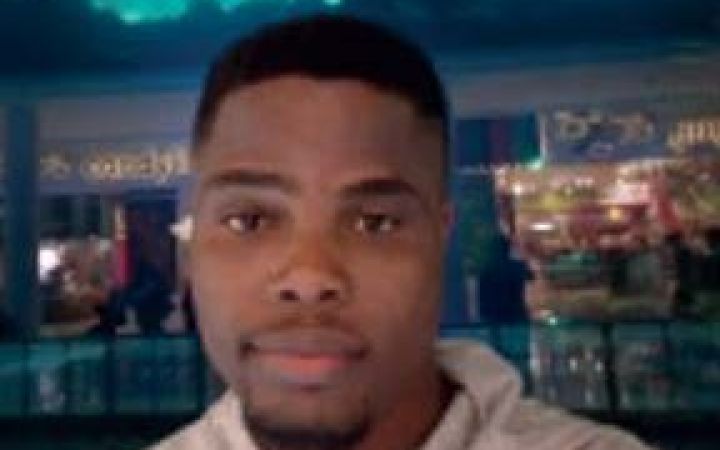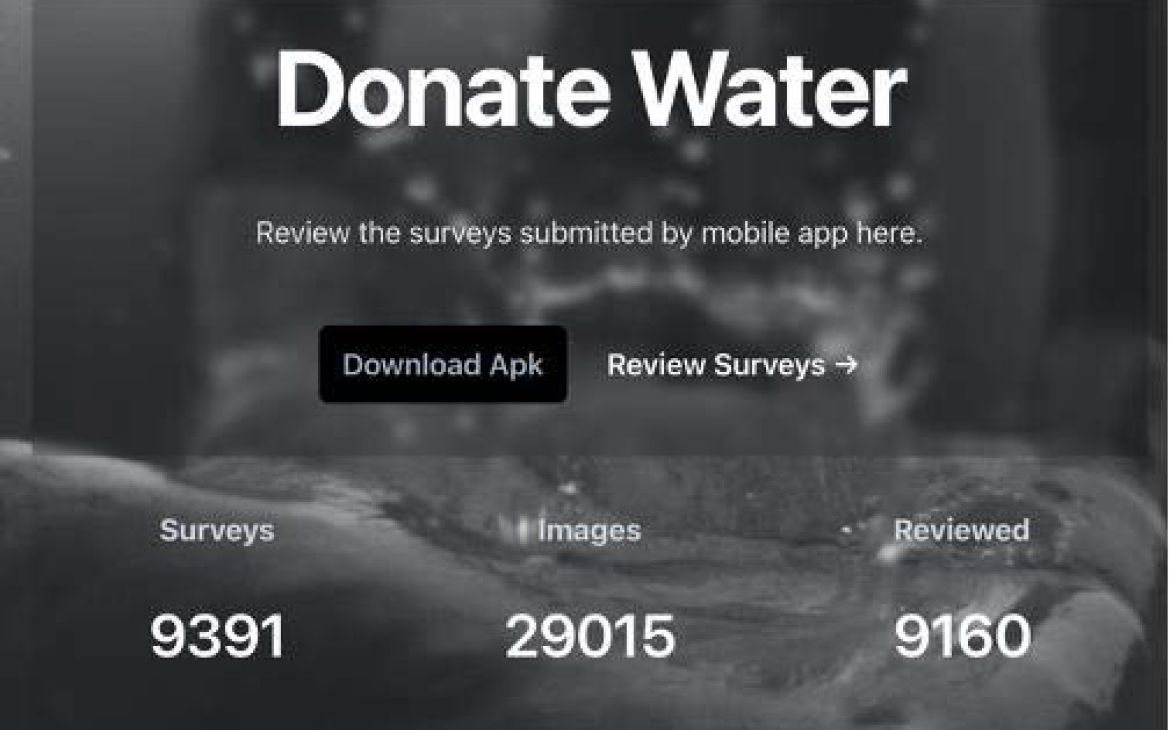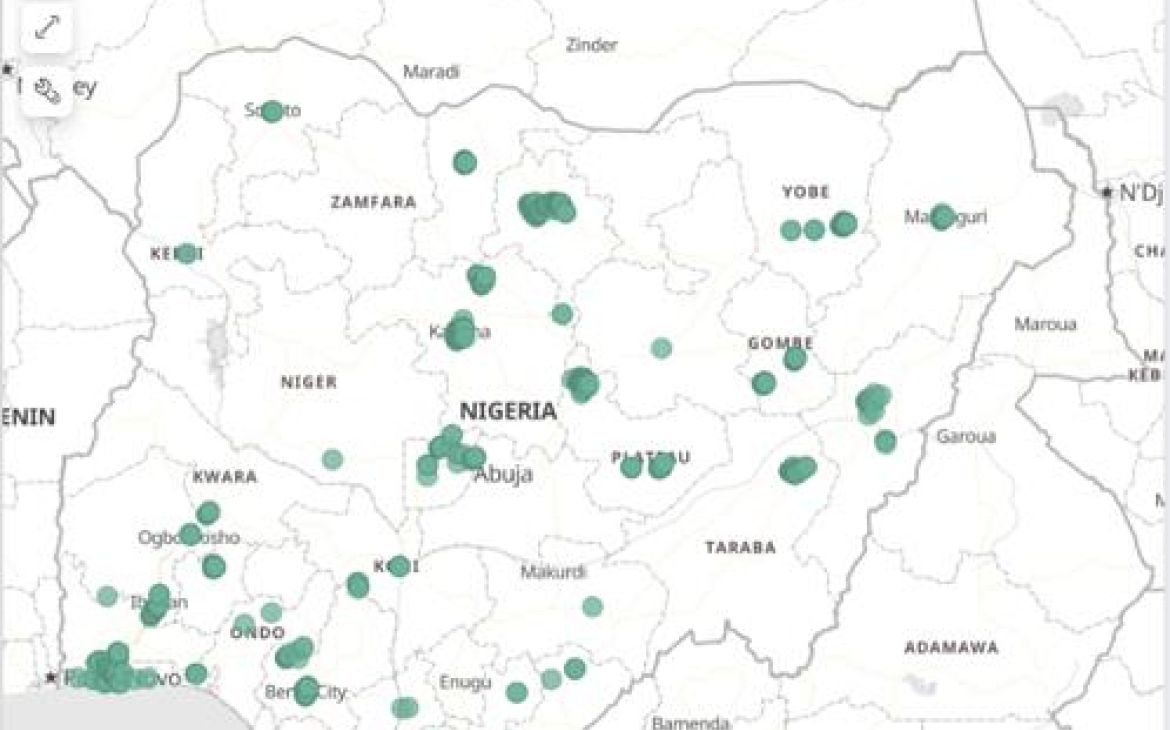Solomon Olusegun, Finalist of GEAR Cycle II Climate change and Gender equality (2021)
Ibadan, Nigeria
Solomon is pursuing a Bachelor’s in Psychology at the University of Ibadan, Nigeria, and nurturing his tech savviness by exploring different projects outside his field of studies. He has always been interested in learning more about the interaction between humans and the environment, including how humans experience climate change. This made him keen to join the Donate Water team during the GEAR Cycle II of the Crowd4SDG project that focused on Gender Equality (SDG 5) and Climate Change (SDG 13). With support from coaches and the project’s partner organizations, the Donate Water team has moved their project forward to advance information on access to clean water in the South of Nigeria.
Access to clean water remains a pressing issue in many parts of the world. In Nigeria, this problem affects women and children differently as they are the ones responsible for fetching water from far-located spots, a process that has been affected by climate change. Despite this phenomenon affecting many people in the country, including some Donate Water team members during their childhood, there is not enough data available but simply “hear-say”, which is not backed up by evidence for implementing the right policies.
To address these challenges, the team planned to develop a crowdsourcing tool to collect and analyse data on the location and quality of water resources, as well as the communities that are most affected, through an innovative citizen science approach. The data would be collected on potable, contaminated or abandoned water sources by both people affected by water scarcity and volunteers. The collected data would show, in real-time, which water resources are to be used, the level of water inaccessibility in rural areas, and who is affected and vulnerable to drought due to climate change, creating evidence for climate change policies.
The team sees the implementation of the project in two phases. In phase one, they aimed to collect data and, in phase two, they would continue collecting and monitoring data but also create awareness to inform where the population needs government support the most and how the population is affected by drought during the dry season.
Despite Solomon not joining the GEAR Cycle II from its launch, he was instrumental in Donate Water from the beginning. His friend, Rachael David, successfully went through the selection, or Gather, phase, where Solomon helped her out with different project tasks “behind the scenes”. During the last phase, one of the team members at the time, Zuhura Shaweji, left the project and Solomon got on board and fully delved into the process. Solomon acknowledges that before joining the team he did not know about citizen science tools and how they could be used for research.
Firstly, the Donate Water team met with developers and learned all the essentials of how VisualCit (a web-based tool that allows citizen scientists to build end-to-end prototypes that process social media data) and the Citizen Science Project Builder work. However, due to some limitations, they decided to use EpiCollect, a mobile phone application that allows professional and citizen scientists to gather, submit and access research data through a central web database. Solomon says that if it was not for the knowledge and skills gained from using the other tools, he would probably not be able to use EpiCollect. During the data collection phase, with support from the SDG Accelerator of the University of Geneva (UNIGE), the team developed a mobile phone application that will be deployed in four regions of the South of Nigeria: the South-East, the South-West, the North-East and the South-South.
Donate Water produced data for these regions from a pilot study conducted around November 2022 on i) location of water sources; ii) gender role segregation; iii) population affected by water access; iv) distance to access and to meet the daily water needs; v) type of treatments to make the water suitable; vi) and paid access to water. Since all team members have personal networks in the affected communities from these regions, they chose to set their target sample population to collect the necessary data.
Donate Water has received over 50 entries pre-cleanup. They held meetings with UNITAR, the International Institute for Applied Systems Analysis (IIASA) and the Youth Agency Marketplace (YOMA) to further refine the metrics. Currently, they are working with IIASA on the development of the Donate Water research application that would include a mapping feature with the geographic location of communities. Once done, they will work with Yoma and U-report, the digital community for young people, by young people of the United Nations Children's Fund (UNICEF), on the incorporation of the tokenization feature and launch it to the general public.
The Donate Water website has been already launched and communication channels are being set up. For Solomon, the data are out there, it is just how you lay your hands on them, and how you tweak your conditions, configurations and indicators in order to get the right data. With the knowledge and skills acquired at GEAR Cycle II, he has learned how to get data by slightly changing parameters from whichever source, for example, Big Data.
“Regardless of the source, you can get data by putting together your query statement and how it can determine the dataset you get.”
As they moved into the Accelerate phase of the GEAR Cycle (CIBX workshop), the mentors and organizations of the Crowd4SDG project supported the team in reaching out to stakeholders. At the moment, Donate Water is collaborating with UNITAR, UNICEF Nigeria, WaterAid, Yoma, Ureport, IIASA, NSO Nigeria and other local organizations.
Another useful skill that Solomon learned through coaching was how to present to an audience. Now he is able to better articulate his ideas and identify his audience engagement so he can follow the conversation and contribute. On behalf of the team, Solomon presented the project to a wider audience during the Refine phase – the SDG Conference at the Geneva Trialogue on 17 March 2022. Solomon recalls that during the roundtable discussion, “he was able to connect with people via opinions, ideas, and [was] able to see where his ideas connect and have mutual advantages.” He attributes this gained confidence and communication and presentation skills to Crowd4SDG coaching.
For Solomon, Donate Water has moved from just an idea to something more of a passion. The project has matured so that the team members are working to establish Donate Water as a Nigerian non-governmental organization. Solomon says that there are a lot of things that people can use to impact the world around them. Crowd4SDG equipped him with knowledge and skills that help people to stand out and present their ideas.
After the finalization of the Crowd4SDG project, Solomon and his teammates continued their important work and made significant progress in updating their application using advanced geospatial technology, such as ArcGIS, and managed to collect more data. They have now data for around 10,000 water points with nearly 30,000 geolocated images of water sources in Nigeria. Has also won Donate Water has also won the World Bank Youth Innovation Challenge from among more than 1,600 registrations and 312 applications received from 63 countries.
Crowd4SDG is an EU-funded research project exploring how citizen science can track progress towards the SDGs and how grassroots innovation can help achieve such progress. UNITAR'S Strategic Implementation of the 2030 Agenda Unit is a member of the consortium along with the University of Geneva, the European Organization for Nuclear Research (CERN), the Spanish National Research Council (CSIC), the Politecnico di Milano and the Université de Paris-CRI.




